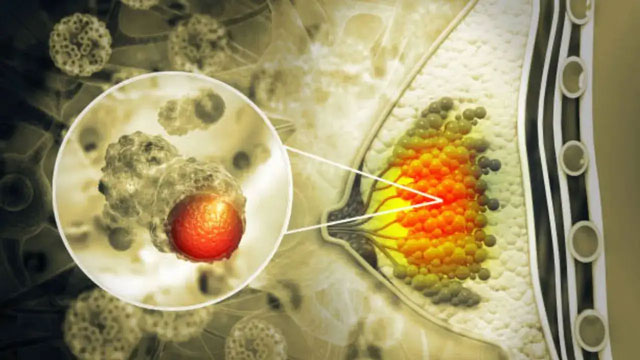Daijiworld Media Network – Washington
Washington, Oct 10: A rare and aggressive type of breast cancer, lobular breast cancer, is on the rise across the United States, with cases increasing at three times the rate of other breast cancers combined, according to a new study published in the journal Cancer. Researchers report an annual growth rate of 2.8 per cent for lobular breast cancer, compared to 0.8 per cent for all other breast cancer types.
“Although lobular breast cancer accounts for just over 10 per cent of all breast cancers, the growing number of new diagnoses makes it a critical area of study,” said Angela Giaquinto, lead researcher and associate scientist for cancer surveillance research at the American Cancer Society (ACS). She added that survival rates beyond seven years are significantly lower than the most common breast cancer type, underscoring the need for improved prevention and early detection strategies.

Lobular breast cancer begins in the milk-producing lobules of the breast. It is characterized by non-cohesive cells that grow in a single-file pattern, making detection on mammograms more challenging. Unlike ductal carcinoma, which forms lumps, lobular cancer spreads in a dispersed manner, potentially delaying diagnosis. The cancer usually grows slowly in response to estrogen and may remain symptomless for years.
Researchers analyzed data from US cancer surveillance programs and registries. They found the steepest increase among Asian American and Pacific Islander women, with an annual rise of 4.4 per cent. White women, however, have the highest incidence overall, nearly 15 cases per 100,000 women, compared to 11 per 100,000 among Black women.
While lobular breast cancer has a slightly higher short-term survival rate compared to other types, the 10-year survival rate drops significantly when the cancer spreads to lymph nodes or surrounding organs. “Invasive lobular breast cancer is understudied, partly because of good short-term outcomes. But at 10 years, women with metastatic disease are half as likely to survive compared to those with ductal cancer, likely due to its unique spread and therapy resistance,” said Rebecca Siegel, senior scientific director for cancer surveillance research at ACS.
Doctors may recommend a combination of the following to diagnose lobular breast cancer:
• Mammogram to detect abnormal masses or changes
• Breast MRI for detailed imaging of breast tissue
• Breast ultrasound to focus on specific areas
• Breast biopsy to examine tissue for abnormal cells
Based on test results, cancer care teams stage the disease and plan appropriate treatment.
Experts emphasise the urgent need for increased awareness, early detection, and targeted research to address the rising incidence of this rare and aggressive breast cancer subtype.